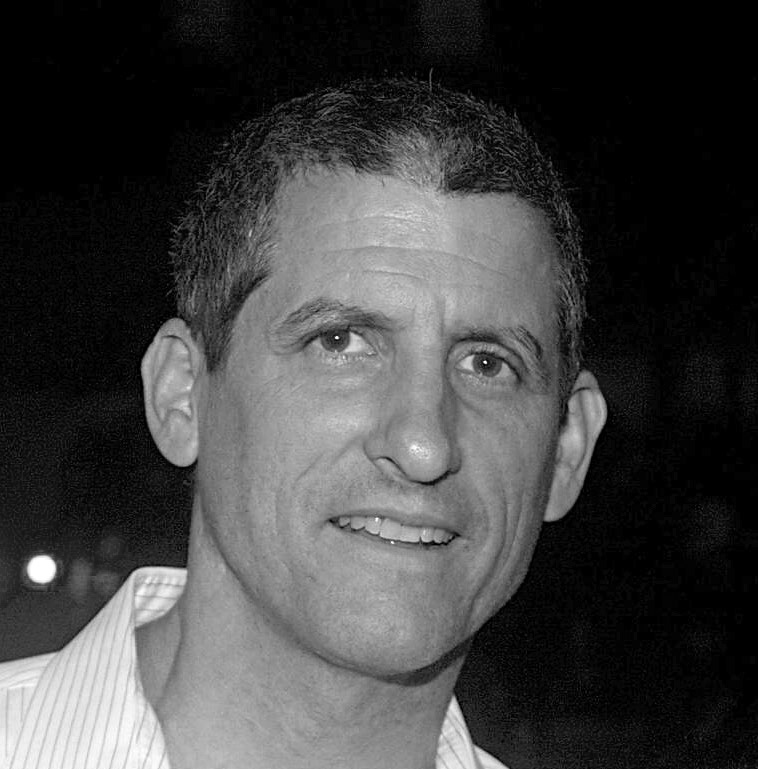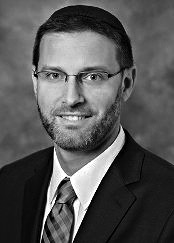
PARSHA: Vayigash, Genesis 45: 1-3
“Joseph could no longer control himself before all his attendants, and he cried out, ‘Have everyone withdraw from me!’ So there was no one else about when Joseph made himself known to his brothers. His sobs were so loud that the Egyptians could hear, and so the news reached Pharaoh’s palace. Joseph said to his brothers, ‘I am Joseph. Is my father still well?’ But his brothers could not answer him, so dumbfounded were they on account of him.”
Mayim Bialik
Actor, neuroscientist, author

I have given this parsha much thought in the 29 years since I chanted these words as a bat mitzvah.
Joseph sends everyone away so that there will be no one around when he makes himself known. He can no longer contain himself and he creates distance in hopes of containing his emotions.
However, his sobs are so loud that they reach the Pharaoh — a striking emphasis of not only the intensity of his cries, but of their deeper significance. Joseph’s cries communicate the emotion which he thought he could keep to himself by isolating himself. How many times have I hidden in isolation in hopes that my emotions would go away simply because they were not being seen or heard?
Hiding does not protect us from our emotions. We carry our traumas and our blessings into every interaction we have. Sometimes we may be able to protect others from their impact, but as Joseph learned, the depth of emotional experience is often so strong, not even sending people away can prevent them from being heard and felt by everyone around — including ourselves.
Rabbi Gordon Bernat-Kunin
Milken Community Schools

Interpreting this passage seems more like staring into a bottomless pit than a shiny mirror. Rather than try to capture its meaning inside a tidy box, imagine a family, a group of friends or a chavurah learning together after a Shabbos meal. Jonathan Cohen teaches that “the drama of the lesson should be based on the shared attempt to find the meaning hidden between the lines.” In this spirit, let’s consider the following open-ended questions:
1. Joseph could no longer “control himself”(l’hitapek) before all his attendants. Classical commentaries translate l’hitapek in many ways — as control or refrain himself, bear or suffer, or strengthen himself. How does each translation alter the story?
2. Why does Joseph need to be alone? Whom is he protecting?
3. To what extent does Joseph actually reveal himself?
4. Why does he cry?
5. When Joseph’s brothers arrive in Egypt, he shrewdly manipulates them into a pit of dependency. Given what Joseph experienced at the hands of his brothers, does he need the brothers to experience what it feels like to be at the bottom of a pit? Does the capacity to forgive or the ability to do teshuvah require the offender to somehow stand in the place of the offended?
6. At the beginning of the story, Joseph dreamed that his brothers and parents would be utterly subservient to him. At the end of the story, he places his family and all of Egypt into a state of dependency. Has Joseph changed?
Rabbi Francine Green Roston
Glacier Jewish Community/B’nai Shalom, Whitefish, Mont.

As we read the Joseph saga, we find ourselves asking over and over again: What is in Joseph’s heart? Is he angry at his brothers, seeking to enact vengeance? Is he waiting for a sign that his brothers have changed before he forgives them? What holds Joseph back from revealing his identity?
Maybe Joseph doesn’t know his “true” identity. Maybe his struggle is not with his brothers but within his own soul.
Pharaoh gave Joseph an Egyptian name, an Egyptian wife and the greatest position in the Egyptian court. When Jacob’s sons arrive in court, they see an Egyptian standing before them.
As he is foreign to his brothers, Joseph is foreign to himself, as well. His sons’ names reflect his sense of disconnection and ambivalence (see Genesis 41:51-52). Each time the brothers stand before Joseph, he must ask himself: Who am I? Am I an Egyptian or an Israelite? Am I Pharaoh’s heir or the son of Jacob? As the brothers reveal their compassion, Joseph is able to find compassion for them, for their father and for himself.
Joseph can no longer restrain himself from claiming his place in his birth family. He sends away the Egyptians and says, “I am Joseph. … I claim my place as your brother and Jacob’s son.”
As an adoptee and as an American Jew, I understand Joseph’s struggle. Like Joseph, we each must wrestle with multiple layers of identity, define our place in our families and find our voice as Children of Israel.
Rabbi Daniel Bouskila
Sephardic Educational Center

It’s easy to beat up on Joseph, the perennial spoiled brat. But who was Joseph? From the time he could remember, someone always wanted something from him. During his childhood, Joseph’s brothers wanted his multicolored coat, which they eventually got, along with the money they made by selling him into slavery.
In Egypt, Joseph’s rise to prominence came about through people needing him for something. The baker, winemaker and Pharaoh all wanted him because of his talent interpreting dreams, and Potiphar’s wife — well, she just wanted him.
When he became the prince of Egypt, Joseph had another encounter with his brothers. Now a powerful public figure, he nevertheless found himself sought out once again for what he could provide — this time, food for his starving brothers. Throughout his life, nobody ever asked Joseph what he wanted, what he needed or how he felt. He was constantly approached by people who made appointments with him for their own needs, always seeking to get something from him.
Joseph finally broke down and cried out, “Is my father still well?” A peculiar question, perhaps, but for Joseph, this was his way of saying, “I also have feelings, and I even have needs. I need my father.” Beyond revealing his identity, Joseph finally revealed — to his brothers, to the House of Pharaoh, and to all of us — the pain pent up deep inside of him, accumulated over a lifetime spent exclusively in the service of others.
Rabbi Jason Weiner
Cedars-Sinai Medical Center

These incredible verses aren’t only the climax of a gripping story, they also hint at something we each may experience and how we could direct our lives accordingly. Imagine the feeling of everything you know to be true — everything you know to be your reality — suddenly being turned inside out. What you thought you knew is not actually correct. Things are much deeper, holier, more complex than you had experienced them. Your past actions — what you had forgotten, thought nobody noticed, didn’t think were a big deal — are suddenly openly displayed before you. In front of your family. In front of God.
How would you react? What would you say? Is it possible to say anything?
The brothers were dumbfounded, “on account of him (mipanav),” which also means “penimiyut” internality. The brothers saw the inner holiness of Joseph’s true identity, which just moments before they couldn’t fathom in their wildest dreams.
One day, hopefully after 120 healthy years, we all will have such a moment. We may see the world in a way we never could have imagined. We will see the true world, beaming with light, with love, with potential, with God. It may be a shocking moment. No words will be necessary, or possible. It has the potential to be a very beautiful moment. If we can begin seeing the potential in ourselves, and the hidden light in every person and every moment, then we have nothing to worry about. Thank you, Joseph, for showing us the way.






















 More news and opinions than at a Shabbat dinner, right in your inbox.
More news and opinions than at a Shabbat dinner, right in your inbox.